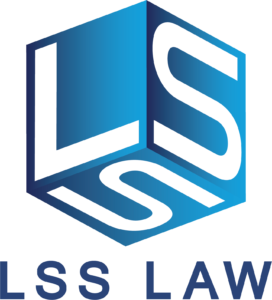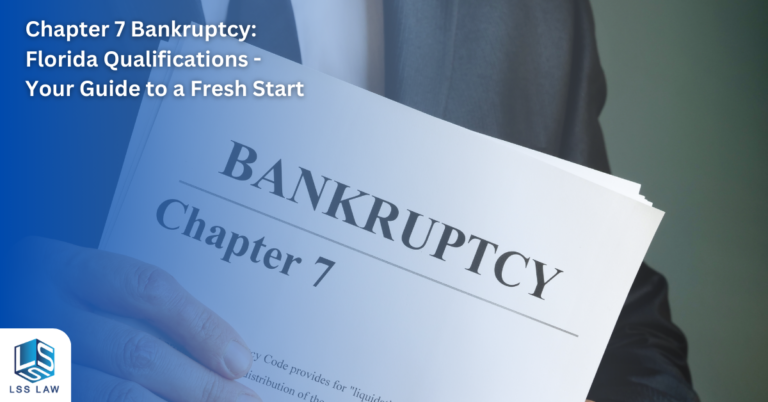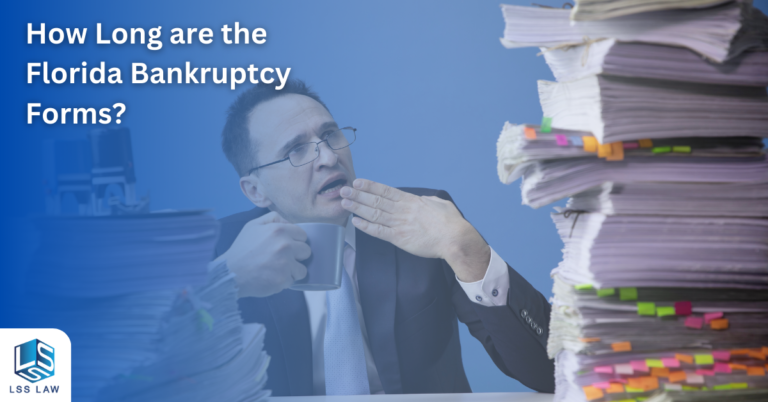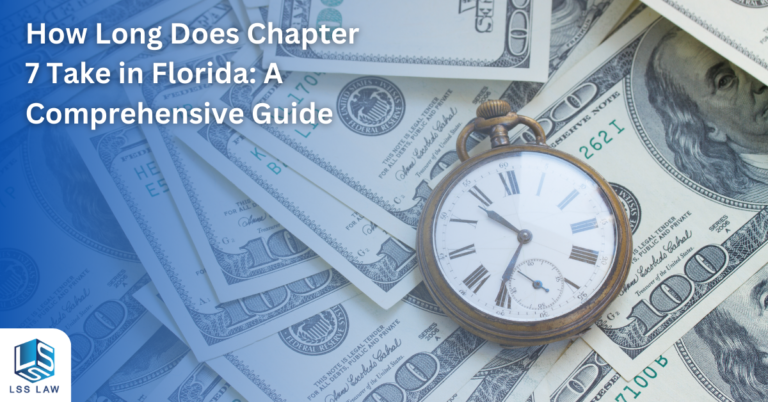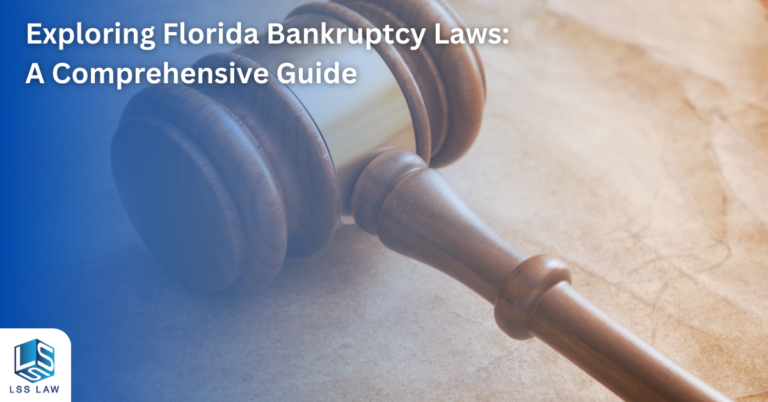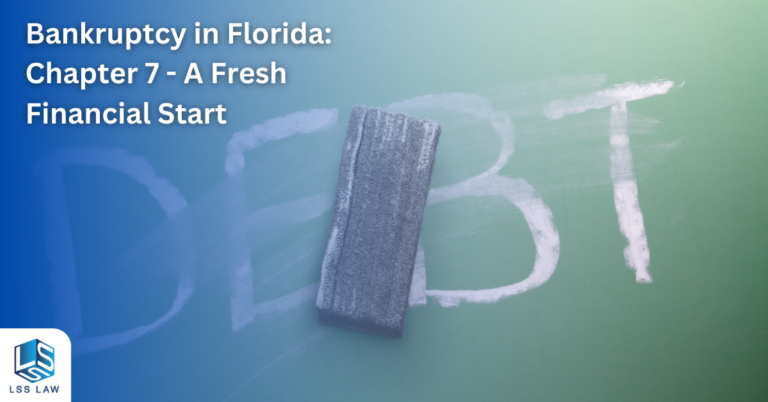We understand how overwhelming debt can be. You’re not alone, and you have options. One such option is Chapter 7 Bankruptcy, which can provide a fresh start. This article will delve into the specifics of qualifications for Chapter 7 bankruptcy in Florida to help you understand if this may be a suitable path for you.
Chapter 7 Bankruptcy: Florida Qualifications Explained

Chapter 7 Bankruptcy, often referred to as straight or liquidation bankruptcy, is a legal process that allows you to discharge most of your unsecured debts. This process involves the liquidation of your non-exempt assets in order to repay your creditors. But what does it take to qualify for Chapter 7 bankruptcy in Florida?
The Means Test: A Key Component for Chapter 7 Bankruptcy Qualification
A paramount step in the qualification process for Chapter 7 bankruptcy in Florida is the means test. This test is designed to assess your financial ability to repay your debts. The means test takes into account your average monthly income, the size of your household, and your allowable monthly expenses.
The means test first compares your current monthly income to the Florida median income for a household of your size. If your income is below the median, you automatically qualify for Chapter 7 bankruptcy. However, if your income exceeds the median, the means test then calculates your disposable income by subtracting allowed expenses from your current income. If your disposable income is too high, you may not qualify for Chapter 7 bankruptcy but could qualify for Chapter 13 bankruptcy.
It’s important to note that the means test considers your average income over the last six months, not your current income. So, if you have recently experienced a decrease in income, you may need to wait a few months before filing to ensure that your average income reflects your current financial situation.
Credit Counseling in Chapter 7 Bankruptcy
Before you can file for Chapter 7 bankruptcy in Florida, you’re required to complete a credit counseling course. This course is a crucial part of the bankruptcy process and must be completed within 180 days before you file your bankruptcy petition.
The credit counseling course is designed to help you understand your current financial situation and explore all your debt relief options, including filing for bankruptcy. The course typically covers topics such as budgeting, managing money, and dealing with debt.
Upon completion of the course, you’ll receive a certificate, which must be filed with the bankruptcy court along with your bankruptcy petition. It’s worth noting that the credit counseling course must be taken from an agency approved by the U.S. Trustee Program.
Florida Bankruptcy Exemptions: Protecting Your Assets
One of the biggest concerns people have when considering filing for Chapter 7 bankruptcy is the fear of losing their assets. However, Florida law provides several bankruptcy exemptions that protect certain assets from liquidation.
The Florida homestead exemption is one of the most generous in the country. It allows you to exempt an unlimited amount of equity in your home, as long as the property does not exceed half an acre in a municipality or 160 acres elsewhere. This means you can keep your home, regardless of its value, as long as you are current on your mortgage payments and the property meets the size requirements.
Florida also offers exemptions for personal property, such as household goods, clothing, and furniture, up to a certain value. Other key exemptions include protections for retirement accounts, life insurance policies, and certain types of income and benefits.
Why a Bankruptcy Attorney is Essential
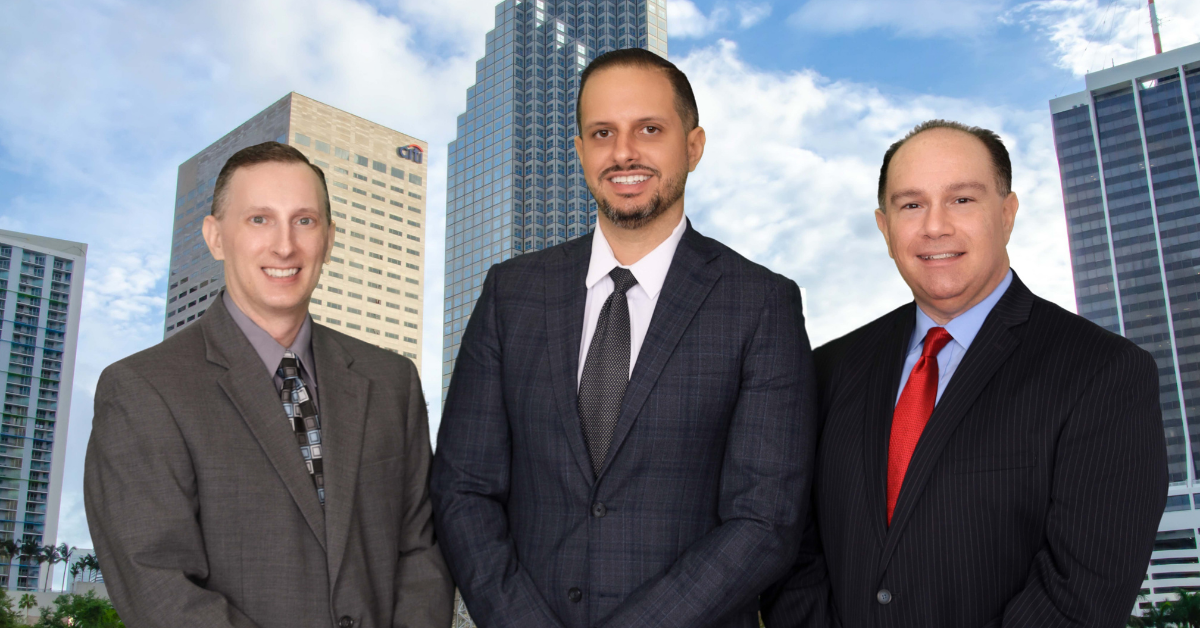
The process of filing for Chapter 7 bankruptcy can be complex and overwhelming. This is where a bankruptcy attorney can be invaluable. An experienced bankruptcy attorney can guide you through the filing process, help you understand your legal options, and ensure that you take full advantage of Florida bankruptcy exemptions.
Your attorney can help you complete the required bankruptcy forms accurately and in a timely manner, advise you on how to handle your assets and debts, and represent you at the 341 meeting of creditors. They can also provide invaluable advice on how to rebuild your credit after bankruptcy.
Remember, filing for bankruptcy is a serious decision that can have long-term financial implications. It’s crucial to understand all the legal requirements and potential outcomes. Consulting with a bankruptcy attorney can help you make informed decisions and set you on the path to a brighter financial future.
How Filing for Chapter 7 Bankruptcy Affects Your Debts
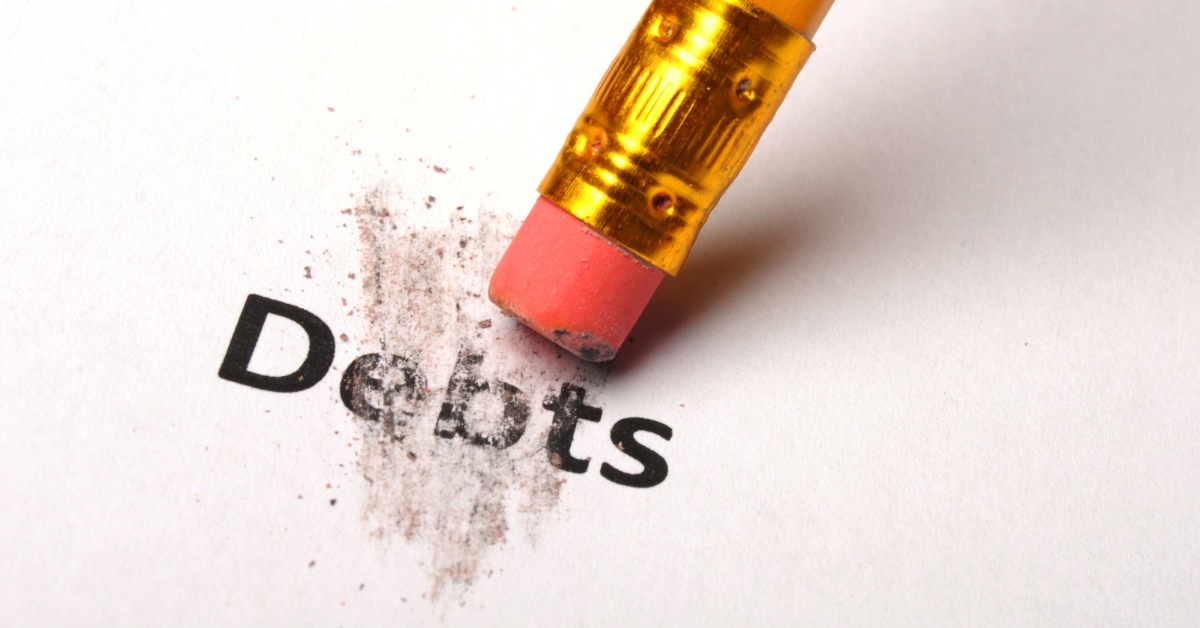
One of the main benefits of filing for Chapter 7 bankruptcy is that it can eliminate most of your unsecured debts. Unsecured debts are those that are not tied to any specific property, such as credit card debts, medical bills, and most personal loans.
In a Chapter 7 bankruptcy, most unsecured debts are discharged, meaning you are no longer legally obligated to pay them. This can provide significant relief if you’re struggling with high levels of unsecured debt.
However, it’s important to note that not all debts can be discharged in a Chapter 7 bankruptcy. Certain types of debts, known as non-dischargeable debts, cannot be eliminated through bankruptcy. These include most student loans, child support and alimony obligations, certain tax debts, and debts resulting from fraud or intentional injury.
In addition to unsecured debts, you may also have secured debts, which are debts tied to specific property like a house or car. While Chapter 7 bankruptcy can eliminate your personal obligation to pay secured debts, it does not eliminate the lien, which is the right of the creditor to take the property if you don’t make your payments. Therefore, if you want to keep property that secures a debt, you will generally need to keep making your payments on that debt.
Why Accurate Filing Matters
When filing for Chapter 7 bankruptcy, it’s crucial to provide accurate and complete information about your financial situation. This includes listing all your assets, debts, income, and expenses in your bankruptcy petition. Any property transfers within two years prior to filing must also be disclosed.
Failure to provide accurate information can lead to serious consequences. If the bankruptcy court discovers that you’ve intentionally left out assets or provided false information, your bankruptcy case could be dismissed, or you could face criminal charges for bankruptcy fraud.
In addition to the bankruptcy petition, you’ll also need to complete and submit various bankruptcy forms. These forms can be complex and time-consuming, which is why it’s often recommended to work with a bankruptcy attorney who can guide you through the process and ensure that all forms are completed correctly.
Chapter 7 Bankruptcy Can Provide a Fresh Start

Chapter 7 bankruptcy is often referred to as a fresh start bankruptcy because it can wipe out most of your unsecured debts, allowing you to start over financially. However, it’s important to understand that while Chapter 7 bankruptcy can provide relief from overwhelming debt, it’s not a magic solution to all financial problems.
While Chapter 7 bankruptcy can eliminate most unsecured debts, it does not discharge secured debts or certain non-dischargeable debts. This means that if you want to keep property that secures a debt, such as a house or car, you’ll need to keep making your payments on that debt.
Additionally, a Chapter 7 bankruptcy will remain on your credit report for ten years. This can affect your ability to obtain credit, rent an apartment, or even get a job. However, it’s worth noting that most people’s credit scores actually improve after filing for bankruptcy, provided they follow the correct recommendations.
Despite these considerations, for many people struggling with debt, Chapter 7 bankruptcy can be an effective tool for gaining control over their financial situation. It can stop harassing calls from creditors, halt wage garnishments, and give you the breathing room you need to rebuild your financial life. As always, it’s recommended to consult with a bankruptcy attorney to fully understand your legal options and determine the best course of action for your unique situation.
Chapter 7 Bankruptcy Qualifications FAQ
What is the Florida Means Test for Chapter 7 Bankruptcy?
The Florida Means Test is a legal procedure used to determine if an individual qualifies for Chapter 7 bankruptcy. It compares the debtor’s average monthly income to the state’s median income for a household of the same size. If your income is below the median, you qualify for Chapter 7. If it’s above, you’ll need to calculate your disposable income to determine eligibility.
What are Florida Bankruptcy Exemptions?
Florida bankruptcy exemptions protect certain assets from being sold to repay creditors during a Chapter 7 bankruptcy. These exemptions include homestead property, cash value in whole life insurance policies, retirement accounts, and limited protections for personal property and vehicle equity.
How Does Chapter 7 Bankruptcy Affect My Credit?
Filing for Chapter 7 bankruptcy will remain on your credit report for ten years. While this may initially lower your credit score, most people find that their score improves over time if they follow the correct recommendations for rebuilding credit.
What Debts are Discharged in a Chapter 7 Bankruptcy?
Most unsecured debts, such as credit card debts and medical bills, can be discharged in a Chapter 7 bankruptcy. However, certain debts, including child support, alimony, student loans, and some tax debts, are not dischargeable.
Can I Keep My House and Car in a Chapter 7 Bankruptcy?
Whether you can keep your house or car in a Chapter 7 bankruptcy depends on several factors, including whether your equity in the property is fully exempt, whether you’re current on your payments, and whether you can continue making payments in the future.
How Can a Bankruptcy Attorney Help with My Chapter 7 Filing?
A bankruptcy attorney can guide you through the complex legal process of filing for Chapter 7 bankruptcy. They can help you complete necessary paperwork, represent you at the meeting of creditors, and provide advice on how to best protect your assets and rebuild your credit following bankruptcy.
Contact Us Today to Learn More About Chapter 7 Bankruptcy: Florida Qualifications
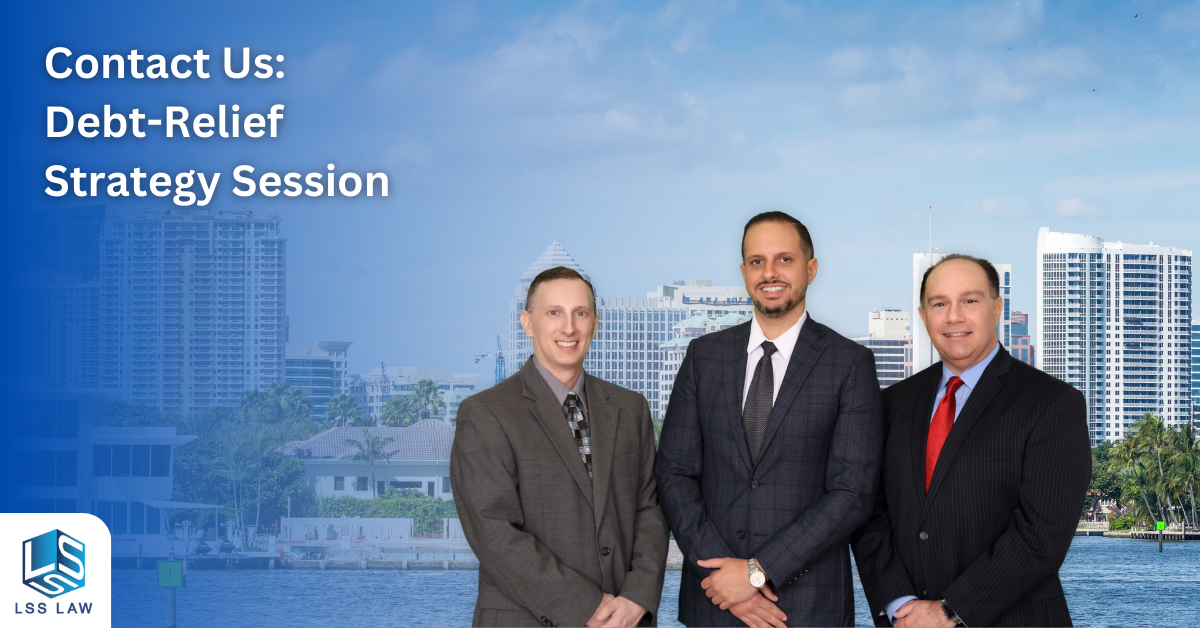
If you’re considering Chapter 7 bankruptcy and want to know more about the qualifications in Florida, don’t hesitate to reach out to us. At LSS Law, we’re committed to helping you remove the financial burden from your back and open the door to a brighter future. Contact us today to schedule a free consultation for personal bankruptcies. You can reach us at (954) 466-0541 or visit our contact page to book an appointment. Let us help you navigate your bankruptcy journey and secure a fresh start.
